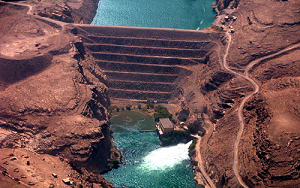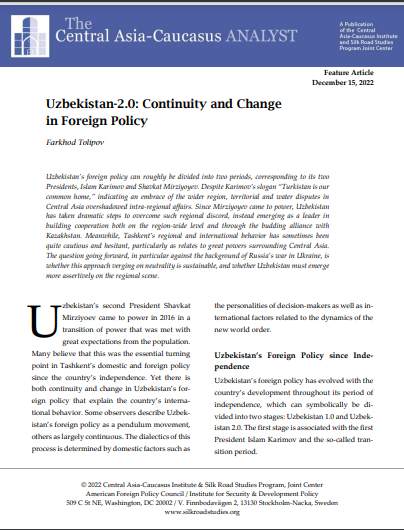Iran and Afghanistan Clash over Helmand Water
By Sudha Ramachandran
July 5, 2023
Recent violent clashes between Iranian and Taliban border guards brought to the fore the festering dispute over the sharing of the waters of the transboundary Helmand River. The clashes occurred amid an escalation of tensions and led to a heated exchange of threatening rhetoric between the two sides. The Helmand’s water is vital to both Iran and Afghanistan and the sharing of this resource evokes strong emotions on both sides of the border. The regimes in both countries regularly engage in muscle flexing on this issue in order to rally the masses behind them. Under the current circumstances, there is little likelihood of a resolution of the dispute.
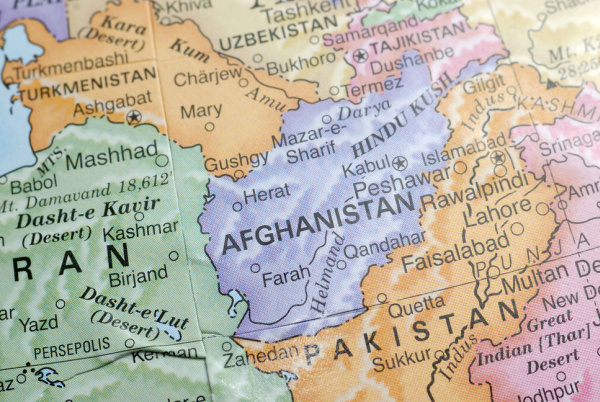
Uzbekistan-2.0: Continuity and Change in Foreign Policy
By Farkhod Tolipov
December 15, 2022
Uzbekistan’s foreign policy can roughly be divided into two periods, corresponding to its two Presidents, Islam Karimov and Shavkat Mirziyoyev. Despite Karimov’s slogan “Turkistan is our common home,” indicating an embrace of the wider region, territorial and water disputes in Central Asia overshadowed intra-regional affairs. Since Mirziyoyev came to power, Uzbekistan has taken dramatic steps to overcome such regional discord, instead emerging as a leader in building cooperation both on the region-wide level and through the budding alliance with Kazakhstan. Meanwhile, Tashkent’s regional and international behavior has sometimes been quite cautious and hesitant, particularly as relates to great powers surrounding Central Asia. The question going forward, in particular against the background of Russia’s war in Ukraine, is whether this approach verging on neutrality is sustainable, and whether Uzbekistan must emerge more assertively on the regional scene.
Explaining the Kyrgyz-Tajik Border Clash: Hypotheses in Search of Corroboration
By Richard Weitz
July 14, 2021, the CACI Analyst
A century ago, the Italian author Luigi Pirandello wrote a three-act play entitled “Six Characters in Search of an Author,” which explored the difficulty of differentiating between illusion and reality. The analyst of the recent border clash between Kyrgyzstan and Tajikistan faces the same challenge. The event, which saw the most serious fighting between independent Central Asian republics, offers several plausible explanations with divergent policy implications.
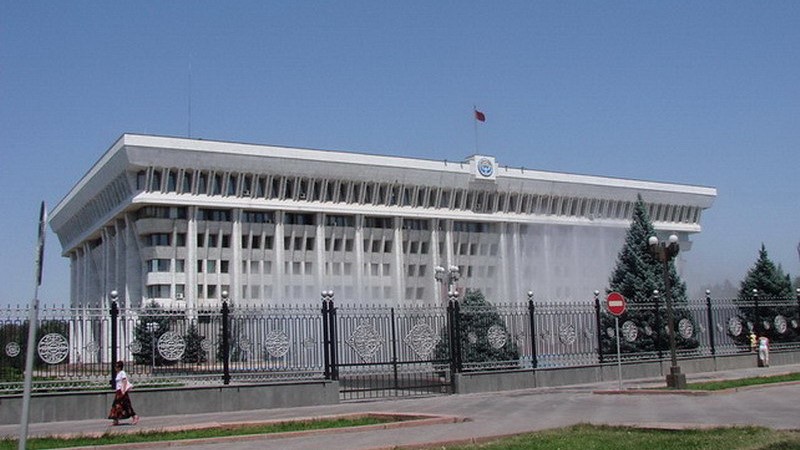
Conflict in the Kyrgyz-Tajik Border – a Potential Turning Point for Central Asia
By Filippo Costa Buranelli
May 5, 2021, the CACI Analyst
The armed conflict of last week between the armed forces of Kyrgyzstan and Tajikistan is the culmination of years of low-level violence. While having an impact on the development, prosperity, and security of border communities and local villagers, these limited confrontations have not directly affected relations between the two countries. However, with some 50 dead, hundreds of injured, and thousands of displaced people, the current conflict could become a turning point not just in their bilateral dealings, but also and especially in the construction of a regional order in Central Asia.
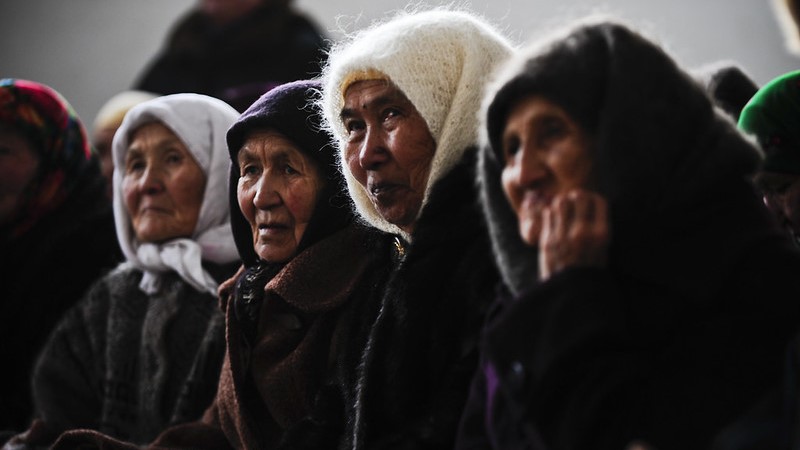
Afghanistan Clashes with Iran over Dam Construction
By Sudha Ramachandran
May 2, 2017, the CACI Analyst
Afghanistan’s building of dams on its trans-boundary rivers has drawn the ire of the lower riparian countries. The construction of the Kamal Khan Dam on the Helmand River has caused grave concern in Iran as it could destabilize the situation in its restive Sistan-Baluchistan province. To pressure Kabul to halt construction of the dam, Iran is said to be using Taliban fighters to sabotage projects. Conflicts over water sharing have the potential to turn violent. Iran and Afghanistan need to resolve the issue through talks.
